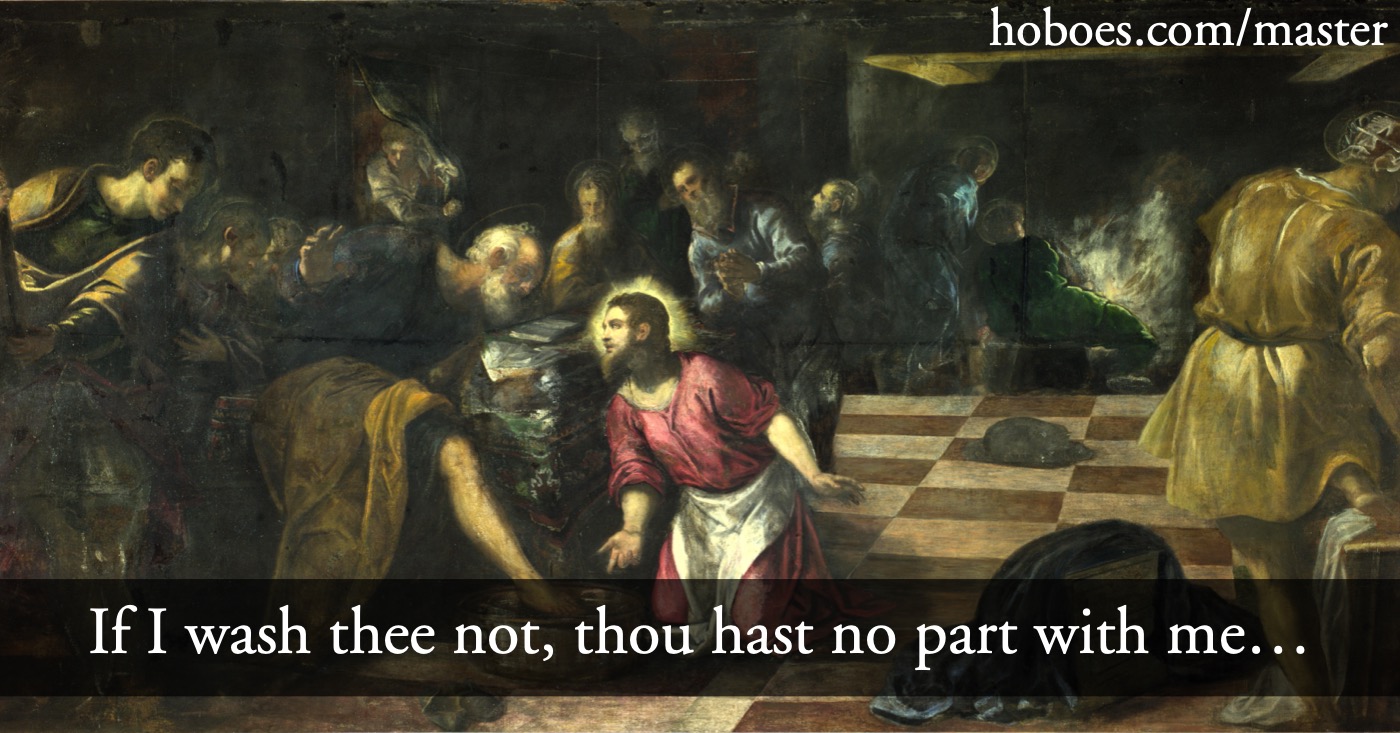- City Lights and Sensors Always Get Me Down—Wednesday, April 2nd, 2025
-

News of the DC helicopter-airliner crash came literally the day I put Italian road safety to bed. By following the forty eight hour rule into forty-eight days plus, I’m able to choose the most interesting of the hot takes, some of which are very relevant to our current policy of adding complexity wherever we see safety issues.
Because what became clear immediately and continued to be clear was the complete lack of surprise from pilots who fly that airport. It was incredible reading about the problems pilots have long complained about at Reagan National in light of the perspective and distraction problems that I covered when talking about pedestrians, cyclists, and motorists.
These complaints by pilots may well not be the reason the helicopter and passenger jet collided; that story seems to get weirder by the week. But they point to an ongoing problem that will only get worse in the air and on the ground until and unless we take it seriously. For a particularly well-written example of what I’ve been seeing, here’s commercial pilot Chris Palmer:
What I think happened in this case:
In this case air traffic control calls out to the helicopter and ask them if they see the regional jet. In this case, they called them an RJ, for shorthand.
The helicopter confirms that they see the RJ and will pass behind as instructed.
But human error, being a main cause, it’s highly likely that the helicopter crew saw the departing regional jet, which can also be seen in this video, with this landing light climbing up from the runway.
Misidentifying this aircraft that was further to the right or starboard of the helicopter, they indeed thought they were passing behind that regional jet with plenty of room to spare.
What they didn’t know, with their eyes turned to the right, was that there was an aircraft approaching them from the left. The one that they were actually supposed to be looking for.
To the airliner, and to any aircraft on a collision course, they can often be impossible to see. Especially considering this was at night, and at low altitude, the anti-collision lights on the helicopter could have easily been lost in the bright lights of the city in the background of the helicopter from the airliners perspective.
- Five Weekly Accomplishments—Wednesday, March 26th, 2025
-

As it turns out, when this was posted he’d already sent that email a few days earlier.
I have to admit to being somewhat surprised by the backlash against government employees being requested to list five accomplishments from their past week. A recent example is a meme demanding that:
Elon needs to send an email to all Americans explaining why the rocket failed If he cannot do that by tomorrow morning, he should consider himself fired.
At the time this was posted, Musk had already sent this email. You could easily run a search on “why did the Space X rocket fail?” and get back several news stories each with the same quotes from Space X. It very clearly had been sent through the various public relations services that generate, among other things, emails to journalists for delivering news to the American people.
And, I’d add, learning the reasons the rocket failed were accomplishments. Were Space X subject to this rule (which it may well be), that launch easily resulted in five accomplishments on its own for every employee involved.
The response was that “a list isn’t the whole picture” and “I… would struggle to list five things because that’s how jobs are sometimes.”
I used to work at a private university. Due to both weird funding mechanisms and just the kind of people who get into management even at private colleges, higher education employment is a very weird amalgam of private business and government work. Our combination of information silos, funding silos, dysfunctional management, and a complete ignorance of customers was very reminiscent of Mike Judge’s• wonderful Office Space•.
Including the paperwork involved. I have very little sympathy with people who are unwilling to list five things accomplished in the last week in a simple email. While I’ve never quite had to deal with TPS report cover sheets I would have jumped at the chance to replace our six-page job evaluations with “Please reply to this email with approx. 5 bullets of what you accomplished last week”.
- Foreign policy is not a deal?—Wednesday, March 19th, 2025
-

What in the world are they teaching in schools? Peace isn’t a deal? Their playground fights must be epic. Do teachers give weapons to the underdog to keep the fight going?
I still don’t understand the “peace is not a deal” talking point. How in the world is peace achieved if it isn’t negotiated? Without negotiations, how can there be peace? War seems to be the only other option. And in fact, the slogan has been updated now that the Left wants war: it is now foreign policy that isn’t a deal.
When did the term “foreign policy” and the concept of doing the right thing change into “doing a deal”?
This is so alien I clearly must be missing something. If peace is not a deal, if foreign policy is not a deal, where do negotiations about peace take place? There doesn’t seem to be room for much except endless war.
Doing the right thing is always a compromise that requires negotiations. Doing what you think is the right thing without negotiating with the recipients of your largess is dangerously close to war. Foreign policy has always been about making deals. That’s literally what it is. Ending the Korean war was a deal. Nixon going to China was a deal. The SALT treaties were deals. Obama sending aid to Iran was a deal.
The entire history of our policy in the Middle East has been a long series of deals. One of the most famous quotes about the Middle East is the apocryphal “We must deal with our enemies, because it is our enemies with whom we make peace.” It remains popular despite its lack of provenance because it embodies real truths about both peace and foreign policy: at its best, it involves deals with enemies as well as allies.
The formulation of foreign policy is the result of negotiations within the United States among parties with different interests. Implementing effective foreign policy is the result of negotiations with foreign powers, allies and enemies. It is, literally, the making of deals between multiple parties.
- Mysterium Fidei: Mortem tuam annuntiamus, Domine—Wednesday, March 5th, 2025
-
From the Agnus Dei I’ve chosen to move to the Mysterium Fidei.
- Agnus Dei
- Mysterium Fidei <-
Unlike the Agnus Dei, the Mysterium Fidei is not a linear translation to English. Here’s the Latin:
Priest: Mysterium fidei!
Congregation: Mortem tuam annuntiamus, Domine, et tuam Resurrectionem confitemur, donec venias.
Or, as we say it in English:
Priest: The mystery of faith!
Congregation: We proclaim your Death, O Lord, and profess your Resurrection, until you come again.
One of the unique and very misleading things about the Agnus Dei is how little it resembles modern English. There are only two words that even remotely resemble their English counterparts. Dei is likely the root of deity, but to be honest I’m not sure how common that word is outside of fantasy role-playing, and old-school fantasy gaming at that. Peccatorum is obviously related in some way to peccadillos in a slightly watered-down way1 but I don’t think I’ve ever heard the word peccadillos spoken out loud. I’ve only seen it in books, and then rarely.
The Mysterium Fidei, on the other hand, is filled with words that look maddeningly familiar, even if you discount the word mortem which is mainly familiar because our justice system uses Latin extensively. Mysterium. Fidei. Annuntiamus. Domine. Resurrectionem. Confitemur. And for the most part, what they look like is what they are, vaguely. Annuntiamus is announce—or proclaim. Resurrectionem is in fact resurrection. Confitemur… well, that’s a little different. But if you squint you can see it.
So let’s take it phrase by phrase:
- Italian road safety campaign social media backfire—Wednesday, February 5th, 2025
-

Translation: “Keep an eye on parked cars, and use your bell to be noticed.” This should not be controversial, although I might quibble with the bell.
I’ve been reading Il Post lately, both to improve my very bad Italian and to gain a non-American, non-English perspective on the news of the day. Yet somehow I missed this article about a “scandal” in Lombardy until a friend brought it to my attention with the comment “This is funny.”
It is funny, and a very good example of why I avoid social media. In a virtual environment we lose any sense of reality. In this case, it appears that a local government was actually doing something substantive to keep pedestrians and bicyclists from being killed by inattentive drivers. It turned into a social media scandal because… it told people how to effectively stay alive rather than laying blame and letting them die!
I’m not going to translate the whole thing. It’s not worth the trouble and in any case my Italian is not up to the task. The title is The questionable campaign on street safety in Lombardy. The subtitle is:
È stata sospesa dopo molte critiche a un post che dava consigli ai pedoni per evitare di farsi investire, dando un po' l'impressione di colpevolizzarli
That is, in my rough Italian:
It [the safety program] was suspended after much criticism to a post that advised pedestrians on how to avoid getting hit, giving a bit of an impression of blaming them.
The thing is, that bit of blame is no more than saying that some pedestrians don’t pay attention to the possibility of dangerous drivers when using the street. I do a lot of walking when I travel, and this is demonstrably true. Judging from the campaign’s graphics, the campaign was not about assigning blame but about saving lives.
- The Master Kneels—Wednesday, December 18th, 2024
-

The somewhat sporadic ritual where rich white liberals wash the feet of minorities has to be the weirdest bit of racism to come out of the compulsory racist teachings of the institutional left. In the first draft I had the adjective “unintentional” in front of “racism”, but any people who publish “white culture” posters that claim it’s white culture to plan for the future, use logic, and understand cause and effect probably understand very well what they’re doing.
It’s interesting to compare this bit of specious invocation of religion with Dr. Martin Luther King, Jr.’s I have a dream speech. I have a dream only made sense to people who understood the Biblical references King was making, whether it be people who were themselves religious or people who had seen Charlton Heston in The Ten Commandments as little as three years earlier.1
King’s speech, in other words, required knowledge of its listeners. This modern washing of the feet, in contrast, requires ignorance, at least if it’s going to be taken at face value. If you’re familiar with the event it’s drawing on, it doesn’t make any sense.
The foot-washing in the Bible that this modern foot ritual resembles was the Son of God washing the feet of imperfect man to cleanse them of their sins. The explanation that racists have made up for the ritual that if “even Jesus” can wash the feet of the apostles, surely we can wash the feet of those we’ve oppressed falls completely apart to anyone who actually goes back to the Biblical narrative it’s invoking.
But… it’s not “even Jesus”. It’s only Jesus. Unless the foot-washing goes both ways, this was not something that man can emulate, not without a lot of hubris, especially in the form it takes: it’s always the white liberal in these rituals taking the place of Jesus, and the minority is always the person getting their foot washed.
Jesus was literally washing their feet because he was better than them. Peter said, no way you’re going to wash my feet, I should wash your feet. Jesus replied, in effect, you’re dirty and I’m not. You are not worthy to enter my home unless I wash your feet.
- Agnus Dei: Latin in the Catholic Mass—Wednesday, December 11th, 2024
-

My local Catholic church uses occasional Latin phrases during the Masses leading up to Christmas and Easter. Our pastor reasoned that (a) Latin is the official language of the Church, (b) it makes a distinction between the different seasons, and (c) it “draws us deeper into the mystery of the liturgy”.
- Agnus Dei <-
- Mysterium Fidei
This inspired me, on seeing an old Latin grade school textbook at a library book sale, to attempt to learn basic Latin. The book I’m using is Jenney, Thompson, and Smith’s First Year Latin from 1953. This is a very dense book; I’m currently about 19% of the way through it after several years. Had I been one of the students it was meant for back in the fifties, this would have been a lot of work to complete in one year!
I’m not going to talk about pronunciation. Textbook Latin and Catholic Latin are pronounced differently, and Catholic Latin tends to be pronounced at least slightly differently in different churches. My experience solely in American churches is that Catholic Latin basically follows the rules of Italian pronunciation. If you know those rules, follow them but pay attention to how your church might be doing things a little differently. If you don’t know those rules, just pay attention and you’ll get it. The most obvious difference between Italian and American pronunciations is that the “ch” sound is a hard “k” in Italian; the soft “c” of American English (receive, decipher) is pronounced as the American English “ch” (church, for instance…) and with basically the same rule: when the “c” is followed by an “i” or an “e”.
With all that out of the way, one of the simplest prayers sung or spoken in Latin during Mass is the Agnus Dei. Many Catholic prayers are titled by their first words in the original Latin. So the prayer that begins, in English, as “Remember, O most gracious Virgin Mary” is called “Memorare” because Memorare is the first word in the original Latin—it means “remember”. And the prayer that begins “Lamb of God” is called the “Agnus Dei” because those are its first words in the original:
- Starvation, sharing, and charity—Wednesday, November 27th, 2024
-

One of the reasons for starvation in the world today is that no one cares. But not in the way most people think about it when they say that no one cares.
The easy assumption, made by everyone from American politicians to so many Catholic charities, is that starvation in the world is a failure of sharing, and we need to convince more people to share. And certainly, sharing is a Good.
But even ignoring fake charities and charities that have devolved into Brazil-like bureaucracies more concerned with their own survival than their ostensible beneficiaries, there is demonstrably enough sharing in the world, especially originating from the United States, to end starvation across the globe. The reason we continue to see starvation is a failure of acceptance.
If the failure of acceptance could be solved—if we could convince foreign governments to accept gifts rather than deny them or, worse, filter them through layers of value-destroying corruption—there would be more than enough sharing already today.
This is true even in, perhaps especially in, the United States, where we can see the stultifying bureaucracy that eats up most of every tax dollar taken from us in the name of sharing with our fellow Americans.
Further, sharing itself would increase if there were greater acceptance of it, if it was obvious that our sharing went to the poor who need it rather than bureaucracies that do not. It’s one thing to share and see a lessening of hunger and to see the poor lift themselves out of poverty because of our aid. It’s entirely another thing to share and see food wasted and rotting, to see money lost in corruption and a Brazil•-level bureaucracy, to see only people with the time to be professional recipients have the time to navigate the welfare system in the United States or the charity system abroad.
At some point, knowingly giving more money to dictators and corrupt bureaucrats changes from charity to a wasteful and deadly form of virtue signaling. Charity has to mean giving effectively or it isn’t charity at all but mere vanity.


